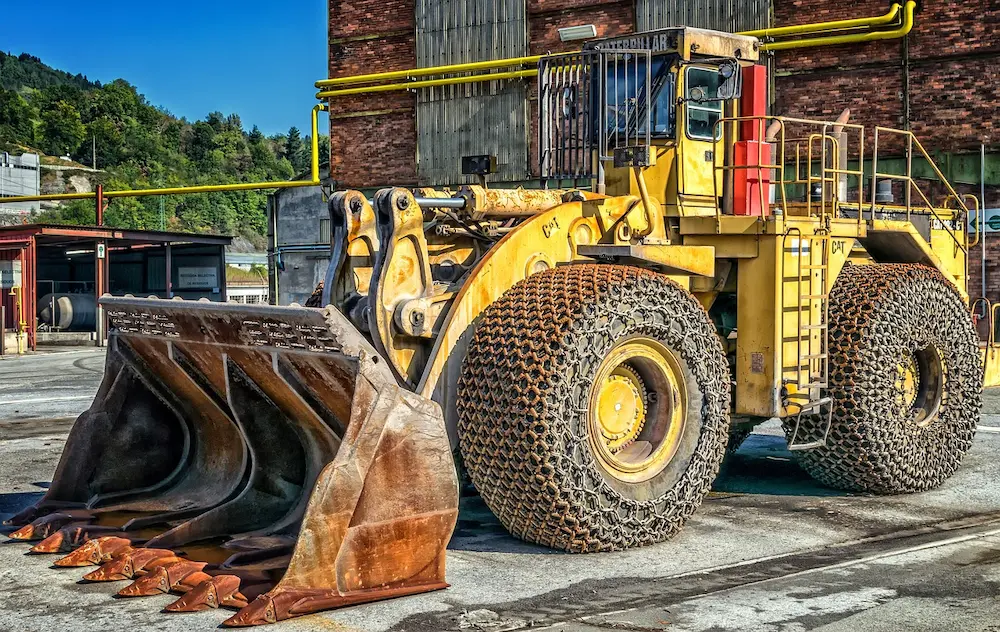Industrial chains play a crucial role in various sectors, serving as essential components in machinery and equipment across industries such as manufacturing, agriculture, construction, and material handling. Understanding the different types of industrial chains and selecting the right one for specific applications is vital for ensuring optimal performance, safety, and longevity. In this guide, we’ll explore the key factors to consider when choosing industrial chains, assess various types available in the market, and provide practical insights to help you make informed decisions.
Understanding Industrial Chains
Industrial chains are mechanical devices consisting of linked components designed to transmit motion or power efficiently from one part of a machine to another. They are commonly used for conveying, lifting, pulling, and transmitting power in various applications. These chains are typically made of metal or plastic materials and come in different configurations to suit specific operational requirements. Roller chains, conveyor chains, and leaf chains are among the most common types used across industries, each with unique characteristics and applications. Roller chains feature cylindrical rollers connected by links and are widely used in machinery such as motorcycles, bicycles, and industrial equipment for power transmission. Conveyor chains, on the other hand, are designed for material handling applications, such as moving bulk materials or products along production lines. Leaf chains consist of interlocking leaf-shaped metal plates and are commonly used in heavy-duty lifting equipment and machinery.
Types of Industrial Chains
Roller Chains
Roller chains are one of the most widely used types of industrial chains due to their versatility, durability, and efficiency. They consist of cylindrical rollers connected by link plates and are commonly used for transmitting power in various machinery and equipment. Roller chains come in different sizes and configurations to accommodate different load capacities and operating conditions. They are commonly used in applications such as automotive, agricultural machinery, and industrial equipment.
Conveyor Chains
Conveyor chains are specifically designed for material handling applications, where they are used to transport bulk materials or products along conveyor systems. These chains typically feature flat or curved links that are interconnected to form a continuous loop. Conveyor chains come in various designs, including roller chains, flat-top chains, and side-flexing chains, to suit different conveyor configurations and operational requirements. They are widely used in industries such as manufacturing, food processing, logistics, and warehousing.
Leaf Chains
Leaf chains are heavy-duty chains commonly used in lifting and load-bearing applications, such as forklifts, cranes, and hoists. They consist of interlocking leaf-shaped metal plates connected by pins and provide high tensile strength and durability. Leaf chains are designed to withstand heavy loads and dynamic forces, making them suitable for demanding lifting and pulling applications. They are available in different sizes and configurations to accommodate various load capacities and operating conditions.
Chain Slings
In addition to the various types of industrial chains discussed above, chain slings are another essential component widely used in material handling and lifting applications. Chain slings consist of lengths of chain configured into various configurations, such as single-leg, double-leg, or multi-leg, with end fittings attached for connecting to loads or lifting points. These slings are commonly used in construction, manufacturing, shipping, and warehousing industries for lifting heavy loads and materials safely and efficiently. They provide excellent strength, durability, and flexibility, making them suitable for a wide range of lifting and rigging tasks. Chain slings are designed to withstand high loads and dynamic forces, making them excellent chains for lashing and ideal for heavy-duty lifting applications where traditional lifting methods may not be suitable. Whether it’s transporting cargo, securing loads for transportation, or lashing materials on ships or trucks, chain slings offer reliable performance and safety, making them indispensable in various industrial and commercial settings.
Factors to Consider When Choosing Industrial Chains
When selecting industrial chains for a specific application, several factors need to be taken into consideration to ensure optimal performance, safety, and reliability. Some of the key factors to consider include load capacity, operating conditions, corrosion resistance, maintenance requirements, and compliance with industry standards and regulations. It’s essential to assess the specific requirements of your application and select the appropriate type of chain that meets those requirements effectively.
Load Capacity and Operating Conditions
One of the critical factors to consider when choosing industrial chains is the load capacity and operating conditions of the application. Different types of chains have varying load capacities and are designed to withstand different operating conditions. It’s essential to determine the maximum load that the chain will be subjected to during operation and select a chain that can safely handle that load without risk of failure. Additionally, consider factors such as speed, temperature, moisture, exposure to chemicals, and other environmental conditions that may affect the performance and longevity of the chain.
Corrosion Resistance and Durability
Industrial chains may be exposed to harsh environments, including moisture, chemicals, and extreme temperatures, which can lead to corrosion and premature wear. When choosing industrial chains, consider the level of corrosion resistance and durability required for your application. Select chains made from materials such as stainless steel, alloy steel, or corrosion-resistant coatings that can withstand exposure to corrosive elements and provide long-term durability and reliability.
Maintenance Requirements
Another important factor to consider when choosing industrial chains is the maintenance requirements associated with the chain type. Some chains may require regular lubrication, inspection, and maintenance to ensure optimal performance and longevity, while others may be more maintenance-free. Evaluate the maintenance requirements of each chain type and consider factors such as accessibility, ease of lubrication, and frequency of inspections when making your selection.
Compliance with Industry Standards and Regulations
When selecting industrial chains, it’s crucial to ensure compliance with industry standards and regulations to maintain safety and regulatory compliance. Different industries may have specific requirements and standards for chain design, materials, and performance. It’s essential to verify that the selected chain meets relevant industry standards and regulations to ensure safe and reliable operation in your application.
Consulting with Experts
Choosing the right industrial chain for your application can be a complex process, especially for specialized or high-demanding applications. Consider consulting with experienced professionals, suppliers, or engineers who can provide valuable insights and recommendations based on their expertise and knowledge. They can help assess your specific requirements, recommend suitable chain types, and provide guidance on installation, maintenance, and optimization for your application.

Choosing the right type of industrial chain is crucial for ensuring optimal performance, safety, and reliability in various applications. By understanding the different types of industrial chains available, assessing specific application requirements, and considering factors such as load capacity, operating conditions, corrosion resistance, maintenance requirements, and compliance with industry standards, you can make informed decisions and select the most suitable chain for your needs. Whether it’s roller chains, conveyor chains, leaf chains, or other specialized chains, taking the time to evaluate and choose the right chain type can help maximize efficiency, minimize downtime, and extend the lifespan of your equipment and machinery.













